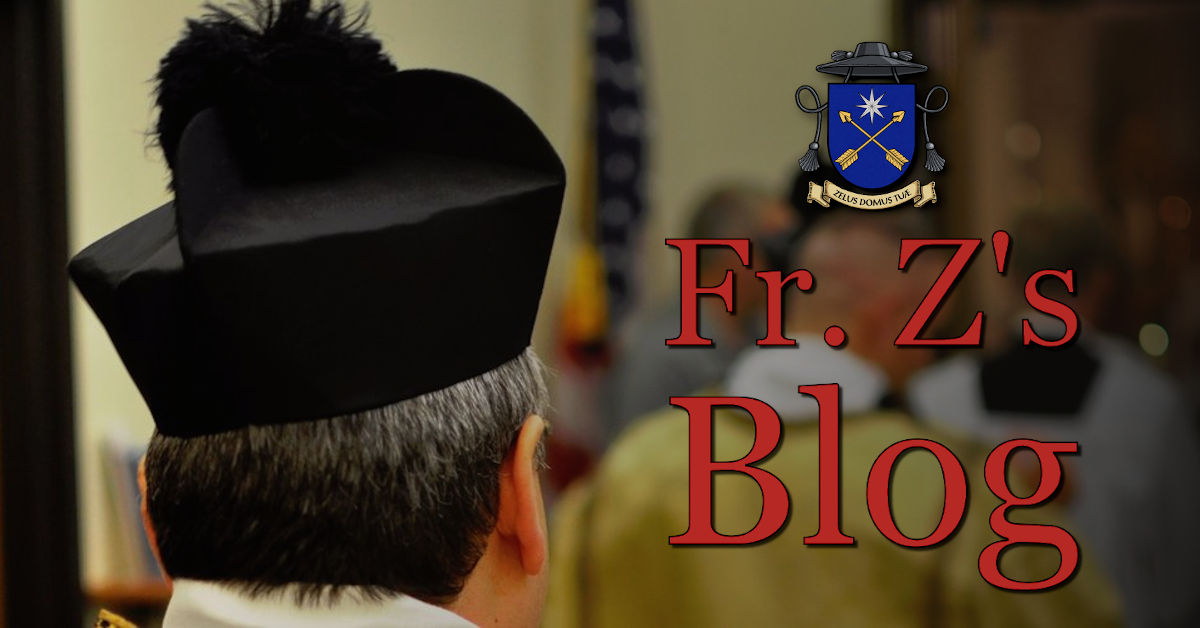- Feb 5, 2002
- 166,681
- 56,290
- Country
- United States
- Faith
- Catholic
- Marital Status
- Married
- Politics
- US-Others
From a reader…
QUAERITUR:
I am from a town where the SSPX has recently established a vibrant chapel and has been extremely generous in providing Traditional Latin Mass and other Sacraments in the traditional rite. The local diocesan parish has also provided daily TLM but can no longer provide Traditional weddings. Recently there were a couple of weddings that took place at the SSPX chapel for which the local diocesan bishop had refused the necessary “permission”. The (diocesan) parish has announced that these couples’ marriage are of doubtful validity and that those who knowingly attended the wedding should go to Confession before approaching for Holy Communion.
Would you clarify what the canonical status of SSPX weddings (specifically those with denied permissions) is? Also is it true that attendance at such a wedding constitutes a sin? Thank you for all that you do those of us living in these confusing times.
Such unnecessary nonsense. For cryin’ out loud! Just give the SSPX priest delegation already! What are these bishops so afraid of? Why are they so spiritually stingy?
Alas, from the point of view of the current Code of Canon Law for the Latin Church, without that delegation, these weddings are invalid. For the sake of proper form, there has to be a officiating witness to the exchange of vows with proper jurisdiction (such as a pastor in his parish) or delegation of that jurisdiction (such as a visiting priest who comes to do the wedding). SSPX chapels are not parishes and their priests are not pastors with jurisdiction to witness marriages. Francis opened this up and made it possible for local bishops to give delegation to SSPX priests for weddings are their chapels. Most US bishops have done this, I think, and they also have a priest who acts as a kind of liaison in these matters. Some bishops are rather more narrow-minded and cold-hearted when it comes to the desire of people to tie the knot with the Traditional Rite, probably in the chapel where they grew up. But why have a pastorally sensitive heart toward these people? Right? They are only the most marginalized and now purposely persecuted group in the entire Church.
Continued below.

 wdtprs.com
wdtprs.com
QUAERITUR:
I am from a town where the SSPX has recently established a vibrant chapel and has been extremely generous in providing Traditional Latin Mass and other Sacraments in the traditional rite. The local diocesan parish has also provided daily TLM but can no longer provide Traditional weddings. Recently there were a couple of weddings that took place at the SSPX chapel for which the local diocesan bishop had refused the necessary “permission”. The (diocesan) parish has announced that these couples’ marriage are of doubtful validity and that those who knowingly attended the wedding should go to Confession before approaching for Holy Communion.
Would you clarify what the canonical status of SSPX weddings (specifically those with denied permissions) is? Also is it true that attendance at such a wedding constitutes a sin? Thank you for all that you do those of us living in these confusing times.
Such unnecessary nonsense. For cryin’ out loud! Just give the SSPX priest delegation already! What are these bishops so afraid of? Why are they so spiritually stingy?
Alas, from the point of view of the current Code of Canon Law for the Latin Church, without that delegation, these weddings are invalid. For the sake of proper form, there has to be a officiating witness to the exchange of vows with proper jurisdiction (such as a pastor in his parish) or delegation of that jurisdiction (such as a visiting priest who comes to do the wedding). SSPX chapels are not parishes and their priests are not pastors with jurisdiction to witness marriages. Francis opened this up and made it possible for local bishops to give delegation to SSPX priests for weddings are their chapels. Most US bishops have done this, I think, and they also have a priest who acts as a kind of liaison in these matters. Some bishops are rather more narrow-minded and cold-hearted when it comes to the desire of people to tie the knot with the Traditional Rite, probably in the chapel where they grew up. But why have a pastorally sensitive heart toward these people? Right? They are only the most marginalized and now purposely persecuted group in the entire Church.
Continued below.

ASK FATHER: What is the status of SSPX weddings when the local bishop denies permission, delegation?
From a reader... QUAERITUR: I am from a town where the SSPX has recently established a vibrant chapel and has been extremely generous in providing Traditional Latin Mass and other Sacraments in the traditional rite. The local diocesan parish has also provided daily TLM but can no longer provide
